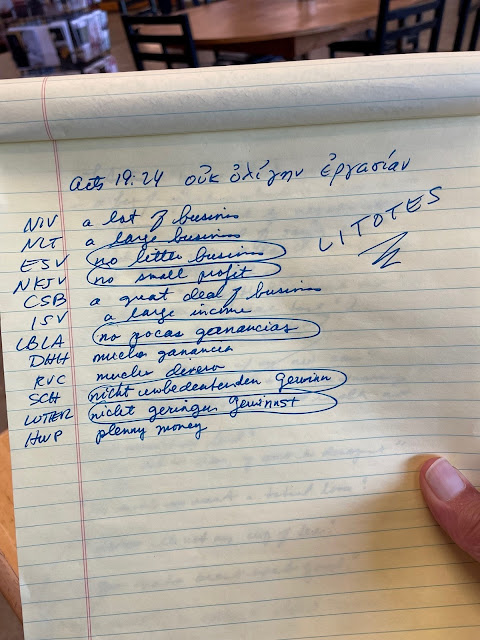I love this quote by the GOAT, A. T. Robertson:
During my Bible reading today I noticed an interesting expression in Acts 19:24.
Here we read about how a certain silversmith in Ephesus named Demetrius made "no little business" for the craftsmen there. Why not just say that he brought "a great deal of business" to them?
Well, the answer is that Luke loves to use a certain rhetorical device called litotes. Instead of saying something directly, you state that the contrary is NOT true. Hence a litotes always contains a negative ("It's not the best weather today, is it?"). Specifically, a litotes can be used to (1) soften a statement, (2) avoid addressing an issue head-on, or (3) create a (humorous) understatement. Here are some examples:
- "I'm not unhappy with my new car."
- "That meal wasn't half bad."
- "If you take his class, you won't be disappointed."
- "It's not my cup of tea."
- "Your grades aren't exactly good."
- "The Greek participle is really not all that hard."
Here in Acts 19:24, "he made no little business" for the craftsmen probably means something like "he made a ton of money" for them.
So my question is, "Do we lose something of importance if we change the negative into a positive?" Or I could ask it this way: "Should we generally try to retain the grammar of the original when we translate the Bible into English?" The longer I study Greek, the more inclined I am to answer yes to both questions.
Anyhow, here are a few translations for you to compare.
What do you think?


